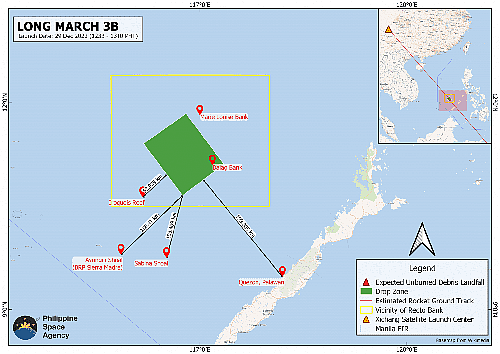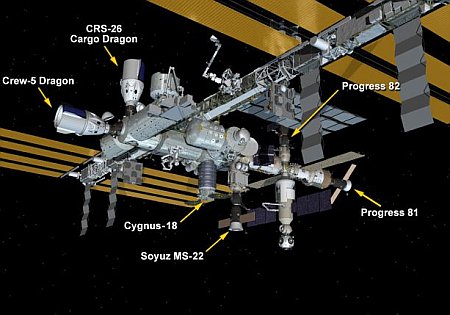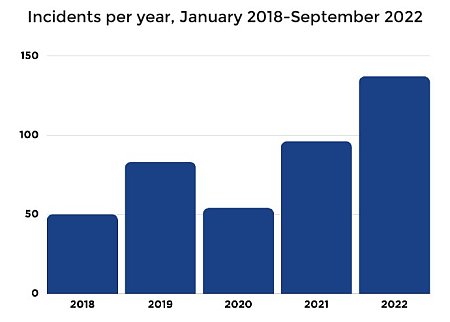China launches twice today to start its 2023 year
China today launched twice with two different rockets from two different spaceports.
First, a Long March 7 rocket took off from its coast Wenchang spaceport, placing three satellites into orbit. Few details were released about the satellites, other than they were being used for various tests of new technology.
Second, the Chinese pseudo-company Galactic Energy used its military-derived solid fueled Ceres-1 rocket to place five smallsats into orbit from China’s interior Jiuquan spaceport. Once again, little information was released about the satellites.
At this moment China leads SpaceX 2 to 1 in the 2023 launch race. However, there are three more U.S. launches planned for today. First Virgin Orbit hopes to finally launch from Cornwall. You can watch the broadcast here.
Then SpaceX has two launches from opposite coasts within an hour, first launching a batch of Starlink satellites from Vandenberg at 9:15 pm (Pacific), then following with a launch from Kennedy of a batch of OneWeb satellites.
China today launched twice with two different rockets from two different spaceports.
First, a Long March 7 rocket took off from its coast Wenchang spaceport, placing three satellites into orbit. Few details were released about the satellites, other than they were being used for various tests of new technology.
Second, the Chinese pseudo-company Galactic Energy used its military-derived solid fueled Ceres-1 rocket to place five smallsats into orbit from China’s interior Jiuquan spaceport. Once again, little information was released about the satellites.
At this moment China leads SpaceX 2 to 1 in the 2023 launch race. However, there are three more U.S. launches planned for today. First Virgin Orbit hopes to finally launch from Cornwall. You can watch the broadcast here.
Then SpaceX has two launches from opposite coasts within an hour, first launching a batch of Starlink satellites from Vandenberg at 9:15 pm (Pacific), then following with a launch from Kennedy of a batch of OneWeb satellites.












